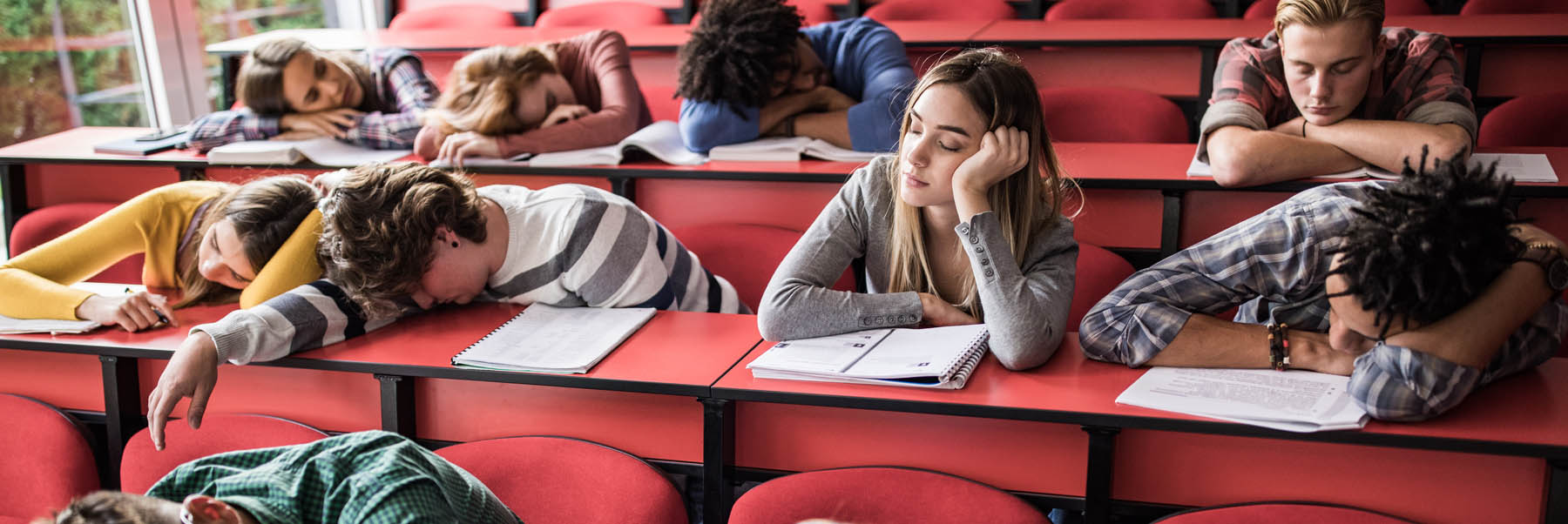Why Are Teens So Tired?

Getting your high-schooler out of bed can be like pulling teeth; as can getting them to go to bed at a decent hour. No longer are they waking you up at 7 a.m like they did in elementary school. So, what happened?
Your tired teenager is just not programmed to wake up early, according to Dr. Gwen Wurm, a specialist in developmental/behavioral pediatrics at the University of Miami Health System. “During puberty, the body’s sleep-wake cycles shift so that it takes longer for adolescents to get sleepy. They often have trouble falling asleep before 11 p.m.” But, even though when they get tired has changed, the amount of sleep they need – about 8.5 to 9.5 hours a night – has not.
So, if you do the math, this means most teens will naturally sleep till 8 a.m. … around the time that last morning bell rings at school.
School start times are contributing to “chronically sleep deprived and pathologically sleepy” teens, according to the American Academy of Pediatrics. The CDC says that “most American adolescents start school too early.” Both organizations agree that later school start times would help improve kids’ grades, health and quality of life.
There are many negative consequences to not getting enough sleep. “Sleep-deprived teens have more attention issues and lower grades; and are also more prone to obesity because they tend to ingest more carbs,” says Dr. Wurm. “They even get in more car crashes due to drowsy driving.”
Here’s how to help
The CDC suggests contacting your school officials to discuss school start times. But, they also admit that there may be logistical issues such as “potential increases in transportation costs and scheduling difficulties.”
This doesn’t help you right now, as you drag your tired teen out of bed to catch the bus. For that, Dr. Wurm suggests helping your kid go to bed earlier by limiting computer, tablet and phone use on school nights.
“This can be a real challenge because schools require work to be done on computers,” she says. “But ideally, keep the computer in a central location like a den.”
The CDC recommends setting regular bed and rise times that include the weekend. But Dr. Wurm says that although this is good in theory, remember that teens are also developing socially. It may be a struggle to enforce. Have rules but be flexible and reasonable, she says, and include your child in the decision making for best results.
And while we are at it …
You should also be aware of the increase in teens using juuls and other e-cigarettes, Dr. Wurm says. These small electronic devices are easy to hide and some even look like a simple USB drive. “As we see kids for their yearly physicals, we are noticing that everyone has a juul. The liquid they contain has nicotine in it which is a stimulant, and kids may be using it to help them stay awake; but it is highly addictive, and we are already foreseeing an issue with it this fall.”
Natasha Bright is a contributing writer for UMiami Health News.
Tags: adolescent health, child development, Dr. Gwen Wurm, Sleep, teens
